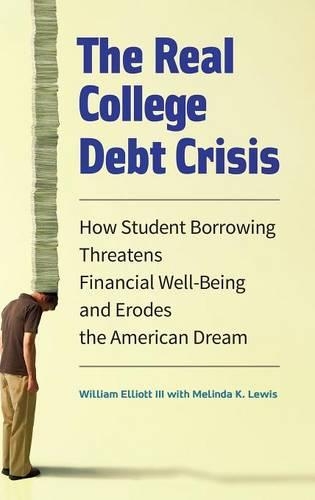
The Real College Debt Crisis: How Student Borrowing Threatens Financial Well-Being and Erodes the American Dream
(Hardback)
Publishing Details
The Real College Debt Crisis: How Student Borrowing Threatens Financial Well-Being and Erodes the American Dream
By (Author) William Elliott III
Foreword by Martha J. Kanter
By (author) Melinda K. Lewis
Foreword by Martha J. Kanter
Bloomsbury Publishing PLC
Praeger Publishers Inc
14th July 2015
United States
Classifications
Tertiary Education
Non Fiction
Funding of education and student finance
378.3620973
Physical Properties
Hardback
272
Width 156mm, Height 235mm
595g
Description
Is it still worth it for low-income students to attend college, given the debt incurred This book provides a new framework for evaluating the financial aid system in America, positing that aid must not only allow access to higher education, but also help students succeed in college and facilitate their financial health post-college. Higher education plays a critical role in the economy and society of the United States, creating a ladder of economic opportunity for American children, especially for those in poverty. Unfortunately, higher education today increasingly reinforces patterns of relative privilege, particularly as students without the benefit of affluent parents rely more and more on student loans to finance college access. This book presents penetrating new information about the fiscal realities of the current debt-based college loan system and raises tough questions about the extent to which student loans can be a viable way to facilitate equitable access to higher education. The book opens with relevant parts of the life stories of two studentsone who grew up poor and had to take on high amounts of student debt, and another whose family could offer financial help at critical times. These real-life examples provide invaluable insight into the student debt problem and help make the complex data more understandable. A wide range of readersfrom scholars of poverty, social policy, and educational equality to policymakers to practitioners in the fields of student financial aid and financial planningwill find the information in this text invaluable.
Reviews
In discussions of American higher education todayincluding for-profit institutions, MOOCs and their spinoffs, governance, and technological changesthese authors and their thesis deserve a seat at the table. Summing Up: Recommended. Lower-division undergraduates through professionals and practitioners; general readers. * Choice *
Author Bio
William Elliott III is associate professor in the School of Social Welfare at the University of Kansas and director of the Assets and Education Initiative. Melinda K. Lewis is associate professor of practice in the School of Social Welfare at the University of Kansas and policy director of the Assets and Education Initiative.
